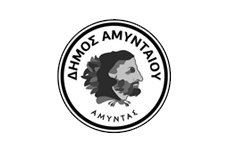This Action aims on reducing and mitigating the conflict between livestock breeders and brown bears through the use of good Livestock Guarding Dogs (LGDs) in the project area. Furthermore, we will support the use of indigenous breeds of livestock guarding dogs (“Hellenikos poimenikos” and “Molossos of Epirus” breeds) throughout the Donation of LGDs. In particular the action will continue to monitor and manage the LGD network created by previously implemented LIFE projects (LIFE PINDOS/GREVENA - LIFE07 NAT/GR/000291, LIFE EXTRA - LIFE07 NAT/IT/000502, LIFE ARCPIN - LIFE12 NAT/GR/000784), encouraging, coordinating and filtering the exchange of adult dogs between the sheep-goat keepers, while input new blood lines found through LGD farmers- breeders in a wider area who have the suitable body characteristics and guarding - chasing behavior form old Hellenic shepherd dogs lines. Moreover, promoting the exchange of puppies between sheep and goats breeders by implementing past experience from LIFE projects and CALLISTO personnel.
Local breeds of livestock guarding dogs (LGDs) have protected domestic sheep, goats and cattle from predators for centuries, as they are adapted to the climate and conditions of the Greek countryside and traditional livestock raising practices. So far, results from the network operation have shown that using LGDs is a cost-effective preventive method for reducing domestic animal mortality caused by large predators. This method is commonly accepted in the agricultural community of less favored areas and has a positive effect on public attitude shift regarding large carnivores’ acceptance and tolerance levels. The use of livestock guarding dogs is one of the most ancient and effective methods for protecting livestock against the attacks of predators. In this project, it is used as a concrete conservation action to minimize human/bear conflicts.
The clear conservation benefits of using Livestock Guarding Dogs is that traditional farmers will be supported in livestock management practices to mitigate predator conflict and that guarding dogs will reduce livestock loss to predators, thus reducing the numbers of predators killed by farmer directly and indirectly. Notice please also that in mountain areas keepers with good LGDs dogs receive social recognition from other sheep keepers and farmers. A rough estimation of the ratio of number of livestock bear attack incidents versus the number of individual bears likely to be involved gives an average of 3:1 meaning that in average one individual bear could be involved in 3 livestock attacks. This means that an overall of 15-20 bears (average) are expected to be involved in such incidents. The LGD’s efficient presence is expected to reverse negative incentives and subsequently related human caused mortality incentives and causes on behalf of livestock raisers, a fact that will have positive effects over a portion of ~20-25% of the resident bear population in the project area.












